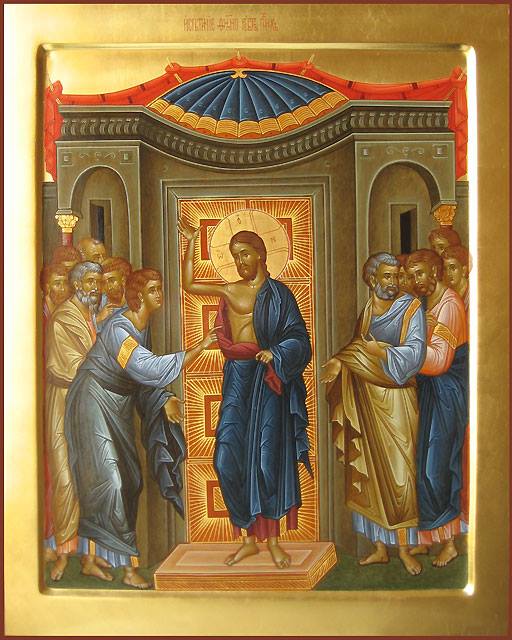 Today is the eighth day of the celebration of the eighth day. Pascha! The Resurrection of our Lord! The Feast of Feasts!
Today is the eighth day of the celebration of the eighth day. Pascha! The Resurrection of our Lord! The Feast of Feasts!
It is a time of absence and presence.
Absence – when the risen Messiah comes to his apostles through locked doors, by divine providence, Thomas is not with them. May he come through the locked doors of our hearts!
Presence – when the risen Messiah comes to Thomas a week later, the doubting apostle gives the proclamation of faith that resounds through the ages: “My Lord and my God!
Absence – when the women come to the tomb, the body of Jesus is not there. “Why do you seek the living among the dead?” the angels ask.
Absence – the disciples on the road to Emmaus do not recognize the Lord.
Presence – they do recognize him in the breaking of the bread, “were our hearts not burning when he explained the Scriptures to us?”
Absence – we do not stand in the presence of the Lord in the same way as the apostles did.
Presence – the Lord is with us in Holy Communion, as he comes to us more intimately than we could imagine.
Absence – “But I tell you the truth, it is better for you that I go. For if I do not go, the Advocate will not come to you” (John 16:7).
Presence – “Then Jesus approached and said to them, “All power in heaven and on earth has been given to me. Go, therefore, and make disciples of all nations, baptizing them in the name of the Father, and of the Son, and of the holy Spirit, teaching them to observe all that I have commanded you. And behold, I am with you always, until the end of the age” (Matthew 28:18-20).
Today the Gospel tells us – “Blessed are those who have not seen and yet have believed” (John 20:29). Our celebration of the Resurrection, therefore, is not simply a historical report or remembrance, it is the truth of God-with-us today, challenging us to live in Christ.
Are not our two Christian greetings exactly the same:
Christ is risen! Indeed, he is risen!
Christ is among us! He is and he will be!
Meditation by Archpriest David Petras
#ByzantineCatholicNewHaven
#StMichaelNewHaven
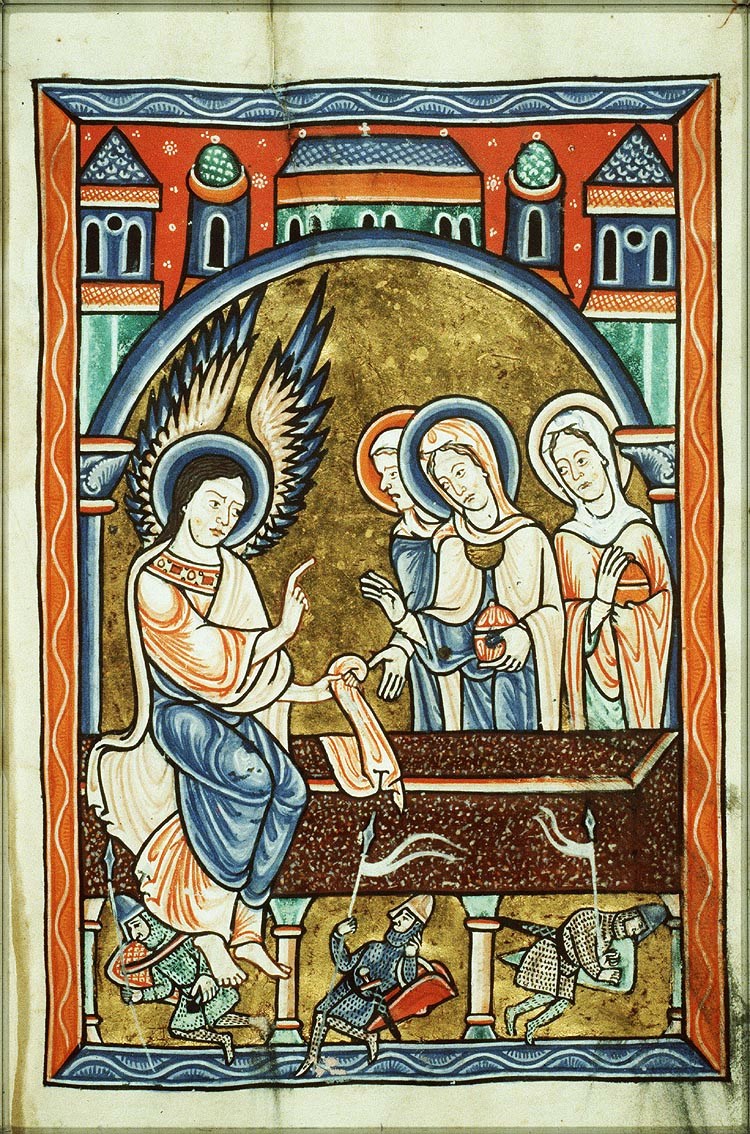 At the Resurrection Matins, there is a procession where the people walk around the church. This procession recalls the way the women went to the tomb. The people stop in front of the Church doors and listen to the priest announce “Christ is Risen!”
At the Resurrection Matins, there is a procession where the people walk around the church. This procession recalls the way the women went to the tomb. The people stop in front of the Church doors and listen to the priest announce “Christ is Risen!”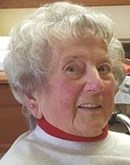 Melanie Horn Struk, 94, of North Haven, passed away peacefully on Monday, April 15, 2019. She was a longtime member of St. Michael the Archangel Ukrainian Catholic Church.
Melanie Horn Struk, 94, of North Haven, passed away peacefully on Monday, April 15, 2019. She was a longtime member of St. Michael the Archangel Ukrainian Catholic Church.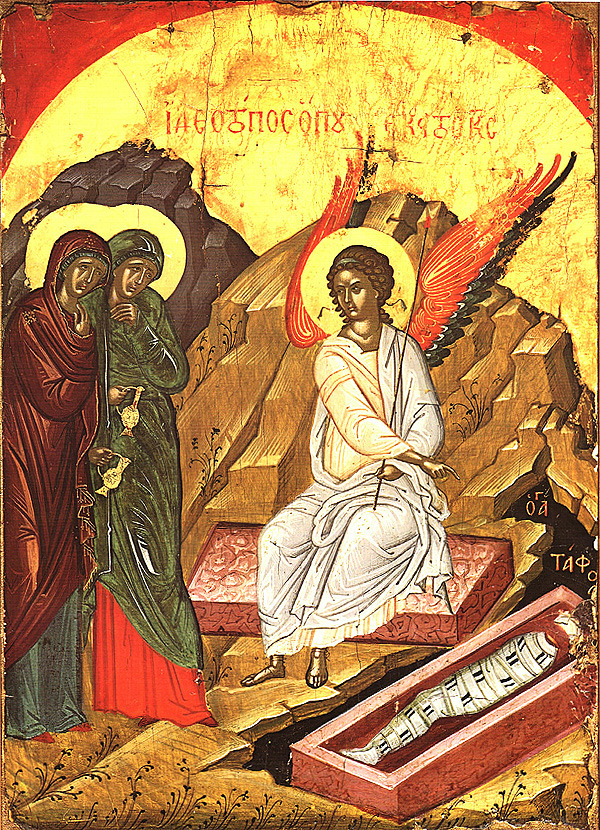 Great and Holy Saturday is the day on which Christ reposed in the tomb.
Great and Holy Saturday is the day on which Christ reposed in the tomb. Our faith is a faith of paradox.
Our faith is a faith of paradox.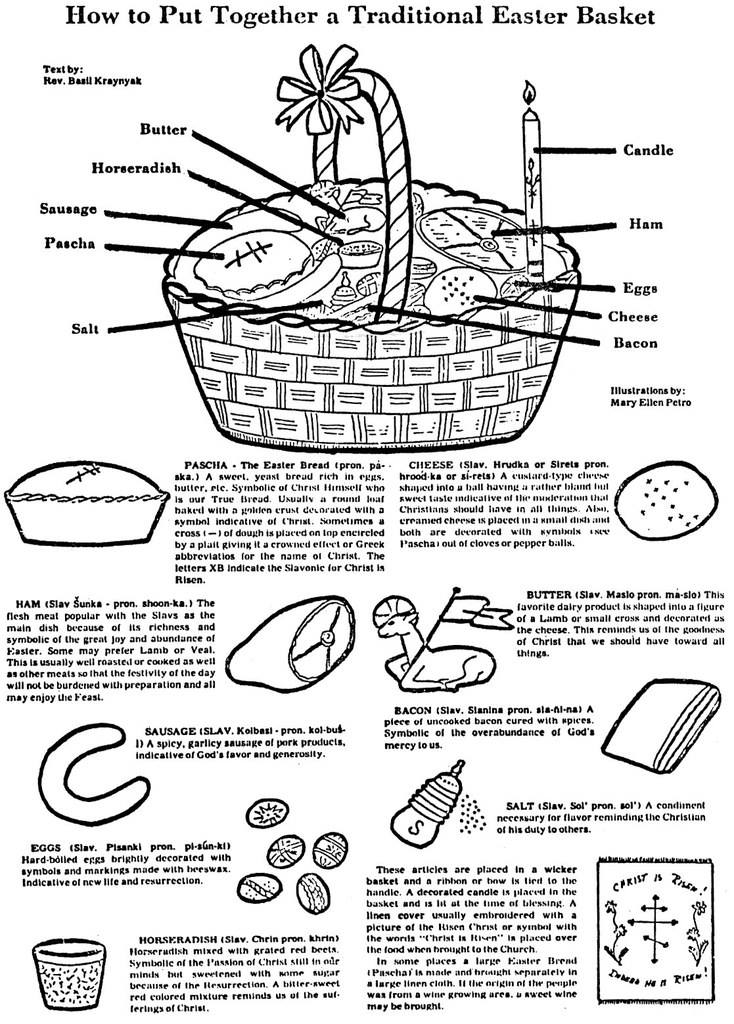 The priestly blessing of Easter foods is a venerable and beautiful tradition of the Kievan Church (not seen often among the Greeks and Melkites). The Polish and other Eastern Europeans bring their Easter foods to church to be blessed.
The priestly blessing of Easter foods is a venerable and beautiful tradition of the Kievan Church (not seen often among the Greeks and Melkites). The Polish and other Eastern Europeans bring their Easter foods to church to be blessed.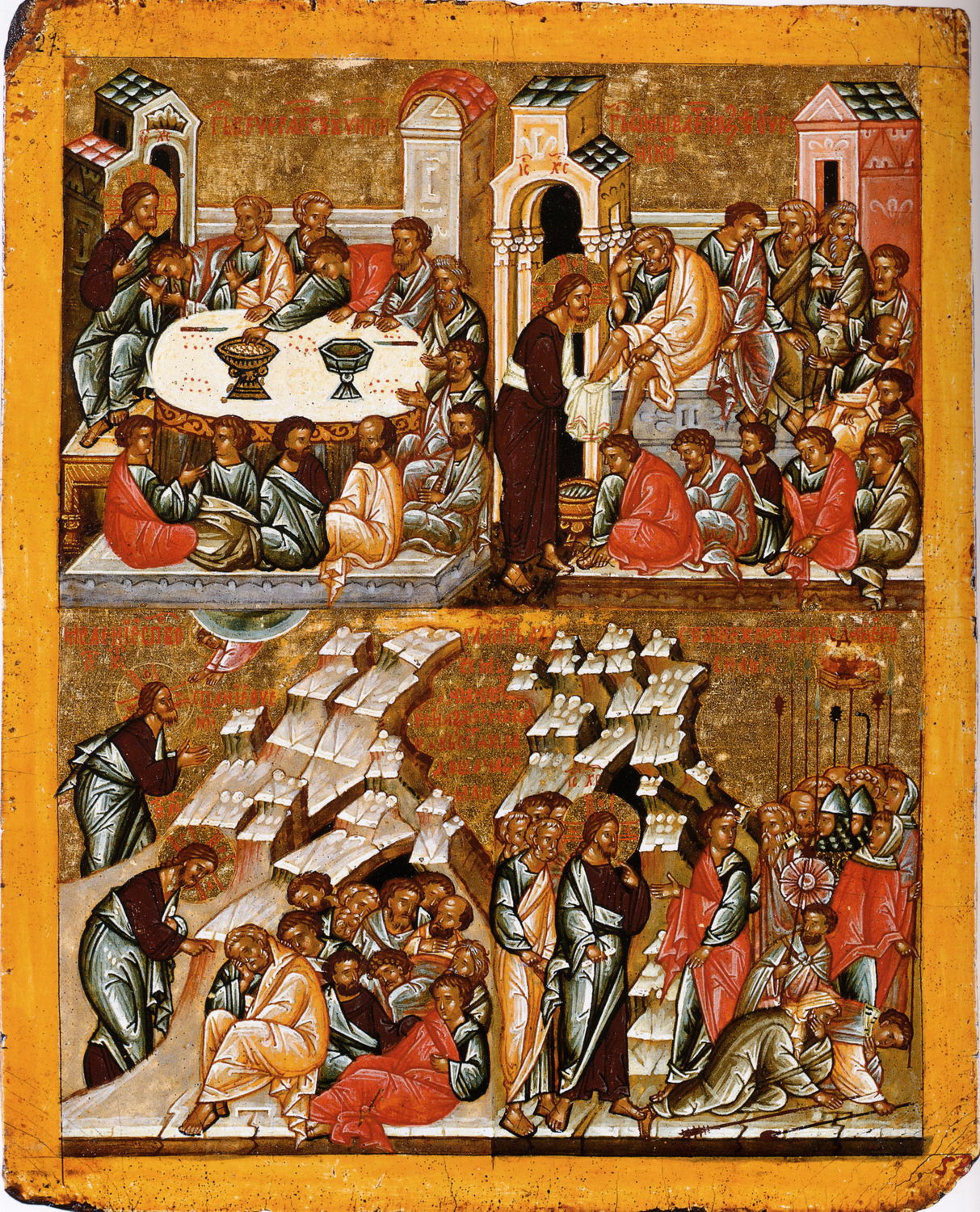 Today we celebrate three mysteries of the church.
Today we celebrate three mysteries of the church.